The state has banned plastic, but can we eliminate it from our lives? Two Mumbai homes take up the Sunday mid-day challenge
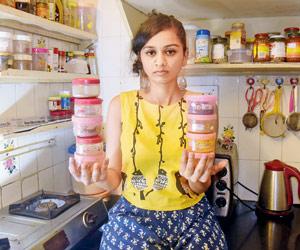
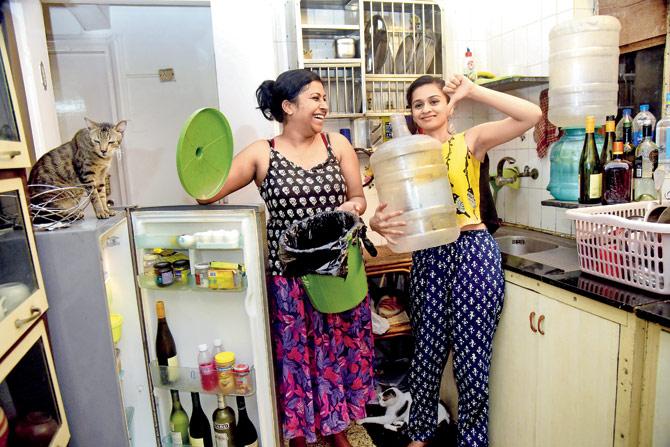
Roy and Jalihal are looking for a greener alternative to plastic bin bags. Pics/Sameer Markande
ADVERTISEMENT
Pooja Sinha Roy,
32, and Amrutha Jalihal, 24
Residents of Yari Road
Their challenge
Finding an alternative to cat food plastic bags and bin liners
Cutting down on plastic containers in the house
Brand consultant Pooja Sinha Roy and flatmate, educator Amrutha Jalihal, live in a cosy 2 BHK apartment at Yari Road with four cats and two dogs. Both hail from Bengaluru, one of the 18 states that imposed a blanket ban on the use, sale and manufacturing of plastic back in 2016. Having been there, done that, the duo is more conscious about plastic consumption than most. In fact, Roy collects plastic once a month and sends it to an ex-colleague who then sends it to a Pune organisation that recycles it and produces industrial fuel. She now plans to connect with Dombivli's Urjaa Foundation, an NGO that encourages residents to deposit their household plastic waste with them for recycling.
"While we are trying to eradicate plastic from our lives little by little, the purchase of certain items are inevitable. For instance, when we order-in, most food deliveries come in plastic dabbas. We try to re-use them," says Jalihal. While the dogs are fed homemade food, cat kibble comes in plastic packets. "There's also a plastic tray for their litter. It's advisable to not flush it down the toilet as it's highly absorbent and will clog the septic system," adds Roy. When you look around the house, the visible signs of plastic include the bin liner, a few plastic containers for storing masalas and daily essentials and the range of toiletries.
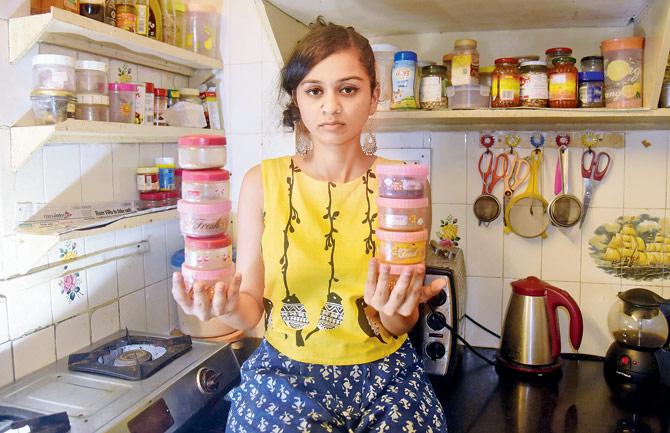
Jalihal with the dabbas that she and Roy hope to cut down on
A year-and-a-half ago, at Roy's insistence, the society tried to segregate waste by installing separate dustbins for wet and dry garbage. However, Roy rues that it didn't pan out as envisioned.
"The person picking up the garbage would ultimately dump everything in one container. So you need to educate people on how to go about it," says Roy. Back in Bengaluru, Jalihal recalls a mandatory Sunday activity where residents would come together and create compost with the biodegradable waste which was then used as fertiliser for the plants. "When I came to Mumbai, I realised people lack that sense of ownership,"
she says.
Both, however, vociferously support the plastic ban. "I think the ban will force people to get more conscious about their plastic usage and think about the little things. What I also know is that it won't be cost-effective. So, the question that is staring me in the face is what are the viable alternatives?" says Roy.
Why they want to join this campaign: "I recently attended a programme on urban sustainable development in Singapore where the focus was on the grave threat of plastic pollution. This campaign being timely will just push me to become a responsible citizen," says Jalihal.
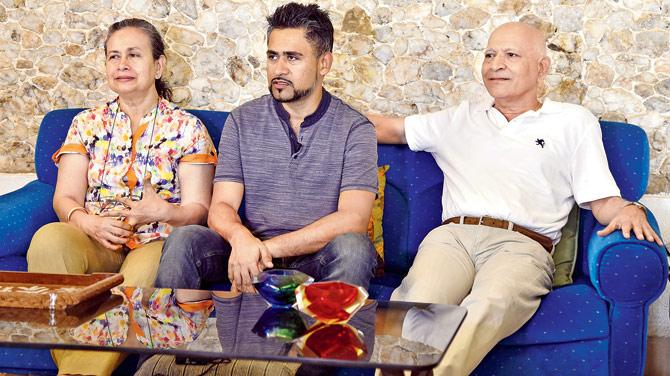
The Creados — Sandra, Reagan and Colin — hope to buy meat without plastic bags. Pics/Prdaeep Dhivar
The Creados: Sandra, 62, Reagan 37, and Colin, 71
Residents of Juhu
Their challenge
Plastic-free storage of vegetables, fish and meats
Using environmentally-friendly bin bags
Getting rid of plastic garden pots
When we meet the Creado family on a late weekday morning at their sea-facing Juhu bungalow, Reagan's mum Sandra, 62, has just returned from the fish market with several plastic packets of fish. Even as she stocks the fish inside the refrigerator, Sandra talks of how guilty she feels, each time she returns home with so much plastic. "I have been looking for those hard plastic re-usable market bags, but I was told that they don't make them anymore," says Sandra, whose son Reagan switched from corporate communications to organic farming, and has been trying to inculcate green living at home. "Forty years ago, if we went to buy fish, we carried that hard plastic bag, which was then washed and dried for use again. We never stored fish in plastic containers or packets because we didn't have freezers, and this meant that we ate everything fresh," she says.
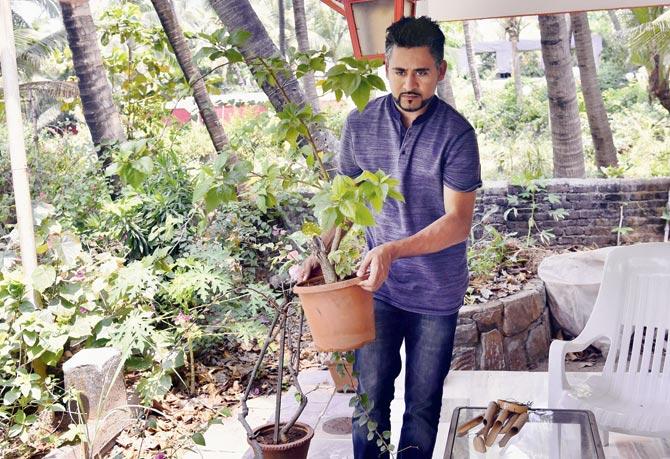
Reagan hopes to bring in ceramic and clay pots and find a solution for plastic packaging
With the entry of plastic — Sandra recalls the first time she got a duty free plastic bag from a trip abroad, and how fascinated everyone was — and better storage facilities, daily market trips turned into a weekly chore, and for a long time, Sandra believed life had become easier. This changed after they started noticing mounds of plastic wash ashore. "We've seen a dreadful amount of waste, pumped out from the nullahs into the sea, which gets dumped on the shore," says Reagan, also an authorised rescue person for green mammals and turtles. "The only way to end this, is to use less plastic."
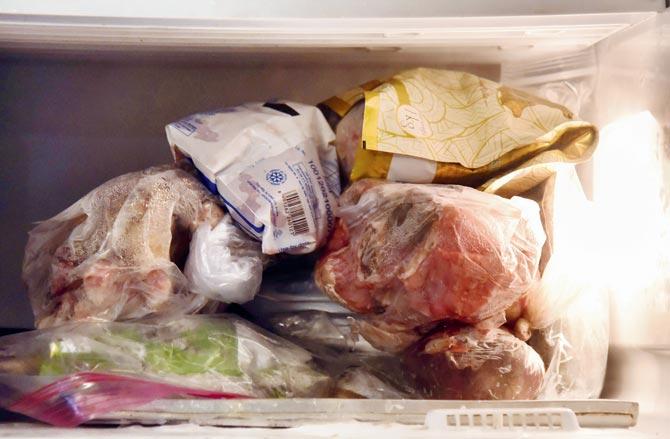
On his behalf, Reagan carries his own plate, spoon, cup and glass straw when he's out. "At food courts, I request them to serve me in my plate," he says. In the course of the next few days, he also intends to get rid of all the plastic pots in the garden.
His father, Colin, who describes himself as "environmentally-focussed" uses only cloth bags, and has completely ditched plastic bottles at home. "We use recycled glass bottles and jars," says Colin.
The Creados, however, still want to get down to zero plastic use. "Disposing of garbage in plastic bags is currently an issue," says Reagan, though they have dug pits in their garden to compost vegetable.
Why they want to join this campaign: "Going plastic-free requires a lot of courage and initially, one is always reluctant," says Colin, adding, "But, we have to take things upon ourselves. The movement has started and we should not wait to be told, or fined or to get a notice."
 Subscribe today by clicking the link and stay updated with the latest news!" Click here!
Subscribe today by clicking the link and stay updated with the latest news!" Click here!






